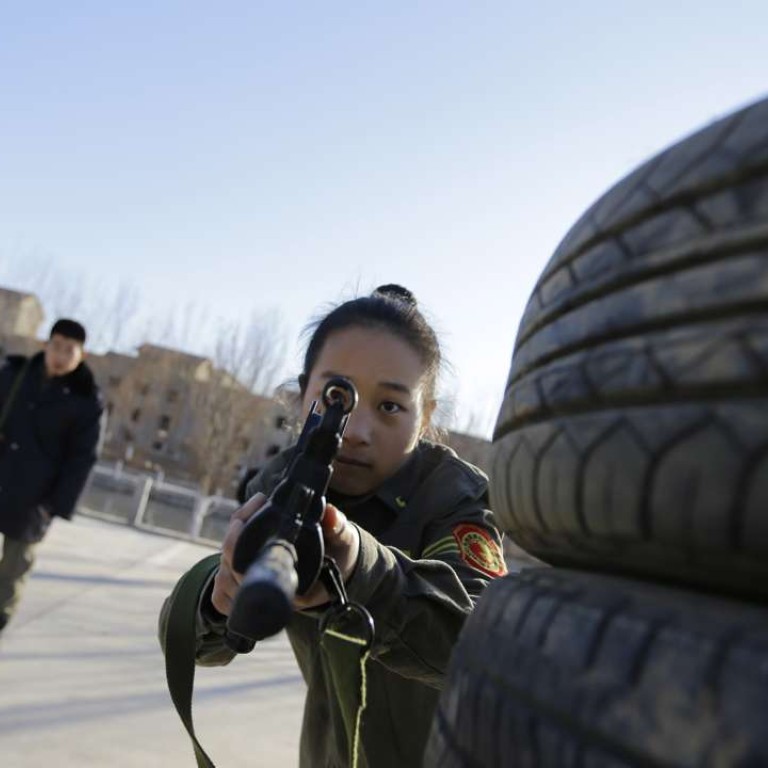
Xiao Jianhua’s preference for female bodyguards highlights growing trend among Chinese tycoons
Founder of protection firm Zhongzhou Tewei says Xiao Jianhua, who left Hong Kong amid mysterious circumstances, requested most of his bodyguards be women
Xiao Jianhua, the Chinese tycoon who mysteriously left Hong Kong on Friday last week, hired female bodyguards from a Shenzhen-based private security firm, according to an executive with the company.
Chen Tong, the founder and manager of Zhongzhou Tewei, said on Thursday that Xiao was the company’s only client who made the specific request that most of his bodyguards be women.
Chen declined to say how many bodyguards his firm had working for Xiao, or provide further details about his claim.
Xiao, who is understood to have left the luxury Four Seasons Hotel in Central, Hong Kong, with mainland agents on Friday – the eve of Lunar New Year – was seen on video that day accompanied by two female bodyguards, sparking interest in what has become an increasingly popular service for China’s billionaires.
Chen said that demand for female bodyguards in mainland China had grown in the past decade as wealthy businessmen preferred hiring women to protect their families.
According to a service description on the firm’s website, female bodyguards employed by the company typically have at least five years training in martial arts and other fighting styles, with a track record of winning “provincial-level and above” boxing or fighting awards.
The women can also drive and speak some English, and are particularly suited for collecting children from school and accompanying female clients, the description says. “But for attacks, female bodyguards generally don’t have strong protection abilities, and it is highly recommended that male bodyguards should be used for such protection,” the firm recommends on its website.
In Xiao’s case, his bodyguards didn’t step in last Friday when Xiao left the Four Seasons. One source told the South China Morning Post that Xiao left Hong Kong “willingly” to assist with investigations on the mainland.
Chen from Zhongzhou Tewei declined to confirm or deny whether the two female bodyguards were provided by his firm, but said the company employed about 30 female bodyguards. Female bodyguards could earn, on average, 40 per cent more than their male colleagues, he said, and an increasing number of women are trying to become bodyguards.
Only about 10 per cent of female bodyguards are former soldiers, with most of them being graduates of sports schools or martial arts athletes, Chen said.
“It is extremely hard to train female bodyguards,” he said. “To qualify as a bodyguard, these women have to pass training and tests of their reflexes and their decision-making skills under pressure and in emergencies.”
A documentary about Chinese female bodyguards that aired in 2013 said demand for female bodyguards had been growing rapidly in China. The main focus of the documentary, a woman named Liu Lili who wanted to become a bodyguard, had quit her job as an interior designer to join a bodyguard boot camp.

